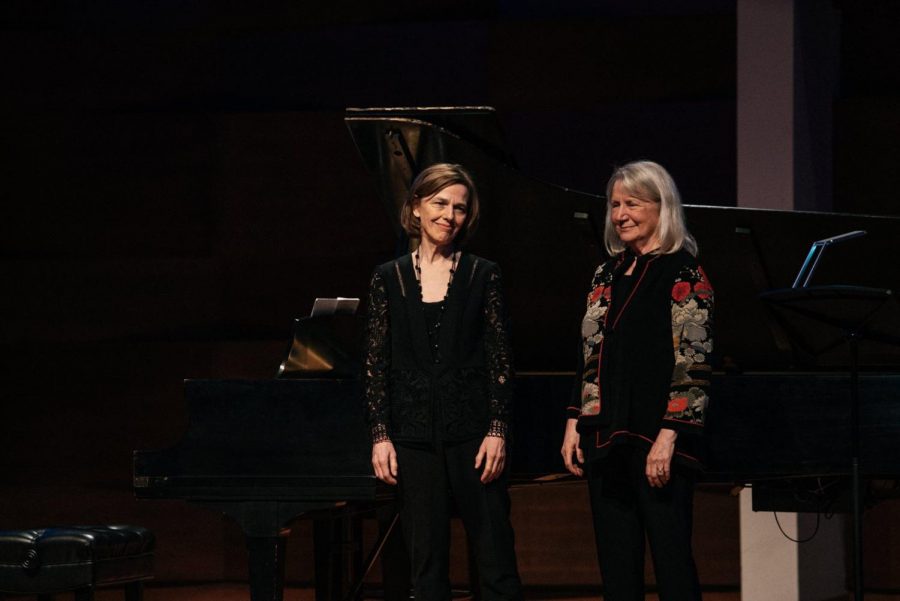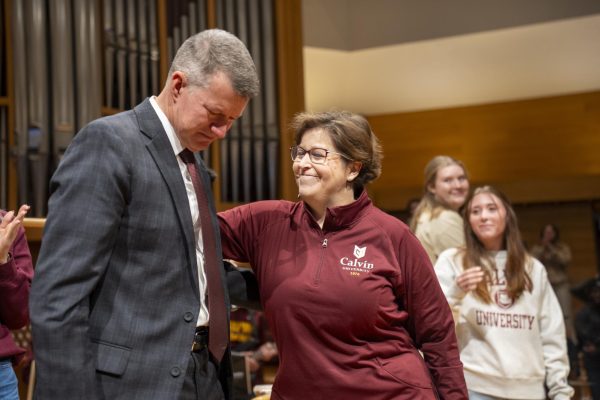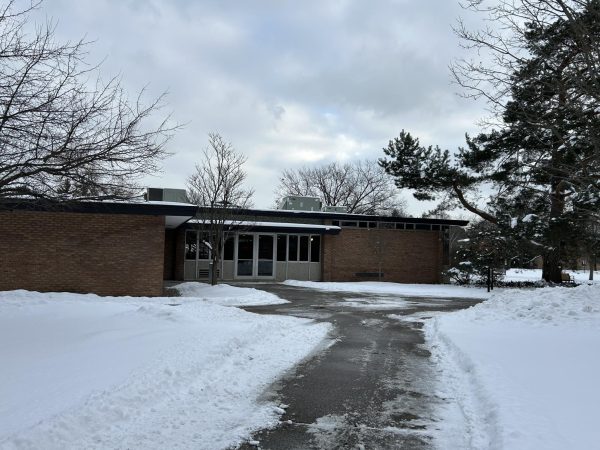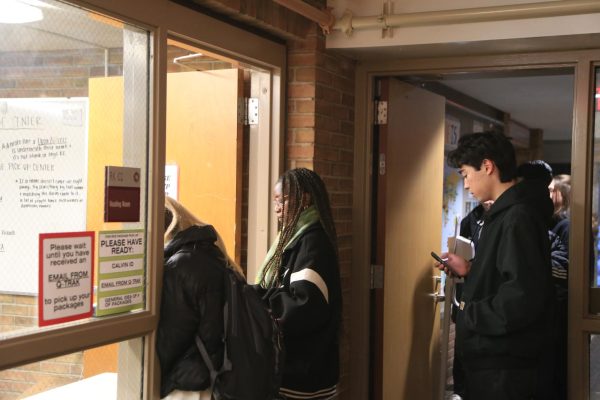CCFW hosts spoken word performance addressing climate justice
“If you don’t remember 1970, you have spent your whole life in a world that is half of what it should be,” said Kathleen Dean Moore, a nature writer and moral philosopher, at an event hosted by the Calvin Center for Faith & Writing (CCFW) on Sunday, March 10.
At the event, Rachelle McCabe, a renowned concert pianist, joined Moore in performing a spoken word classical music crossover titled “A Call to Life: Variations on a Theme of Extinction,” addressing the immense environmental impact of climate change.
“Since 1970, 60 percent of everything that has the breath of life, animals and plants, has been erased from the face of the earth. Six out of every ten beings,” said Moore.
The performance began with McCabe playing a chord progression from “Variations on a theme of Corelli,” a piece written by Sergei Rachmaninoff during a bout of depression. McCabe and Moore chose this piece because the profound sorrow it expresses fits the gravity of the environmental issues they address.
“We are harnessing a deeply expressive piece of music, a formidable piece, to address a formidable global issue,” said McCabe.
The performance was structured in five parts, with piano music and spoken word interwoven through each section. Early on, Moore asked the audience to contemplate the sheer number of lives lost in the past 50 years.
Moore recounted her experience of witnessing the beauty of the natural world.
“Each being is worthy,” she said, as McCabe played the chord progression introduced in the beginning, “each fractal layer is necessary.”
The performance soon took a darker tone as Moore spoke about humanity’s role in the extinction of life. She listed some of the animals dying from humans encroaching on their environment, endangered animals hunted for sport and animals dying from oil spills and warming oceans.
“The world is losing 150 species a day,” she said. The music crescendoed, and McCabe began to play with frenetic urgency.
Moore critiqued economies that thrive off of killing living beings and transmogrifying them into commodities.
“Any culture that prides itself on accumulating wealth instead of sharing it, a culture that gobbles up the fecundity instead of nurturing it,” she says, “will kill off the sources of its sustenance.”
Moore proposed three ways to stop the impending extinction the world is facing.
“Number one,” she said, “stop the killing. Number two, protect everything we have left. And number three, create new life-ways in harmony with the earth.” Moore called for the audience to ask themselves what destruction they can prevent.
At the end of the performance, the audience sat in silence for a few moments before applauding.
“What a powerful combination,” said English professor Debra Rienstra, who spearheaded this event. “It speaks to the power of collaborative arts.”
Rienstra organized the event for the Dean’s Council for the Arts in collaboration with the CCFW. Part of the reason she wanted to host Kathleen Moore and Rachelle McCabe was because of their work with the pressing issue of climate change.
“We have to talk about it. We have to be frank and realistic about the urgency of the need for climate action,” Rienstra said.
But the subject of climate change is not without its critics. Several policy makers have called into doubt the human impact on the environment and fought for legislation that limits education about climate change. Earlier this month Connecticut state representative John Piscopo proposed a bill that attempted to limit education on climate change.
Rienstra addressed climate skeptics by asking that they read Kathleen Dean Moore’s books.
“She takes apart the distinction between scientific evidence and moral principles,” said Rienstra, noting that Moore is a practiced philosopher. “I don’t think me coming up with facts is going to do anything, so I would refer someone to really reliable, really well-presented written arguments.”
In addition to the spoken word and classical music crossover, the CCFW also hosted a lecture by Kathleen Dean Moore the following Monday, titled “Great tide rising: toward clarity and moral courage in a time of planetary change.”
You can access a previous recording of the performance here.













